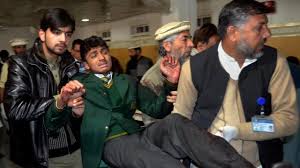The long queues for fuel at filling stations in Abuja persisted on Tuesday as hundreds of motorists thronged the few outlets that sold the product on the second day of the nationwide industrial action embarked upon by oil workers.
Oil workers under the aegis of the Petroleum and Natural Gas Senior Staff Association of Nigeria and the Nigerian Union of Petroleum and Natural Gas commenced a three-day warning strike on Monday to push for the implementation of their demands from the Federal Government.
The strike and its resultant effect slowed business activities in the Federal Capital Territory as many filing stations were shut to customers.
Only the few large stations sold products, a development that caused long queues for fuel in the city.
Our correspondent observed that the presence of black marketers on major roads in the city increased immensely as they cashed in on the product scarcity to make quick money.
The Federal Government had announced on Monday that it would hold a meeting with the aggrieved oil workers as well as other stakeholders in the sector in order to end the strike and address the concerns raised by the unions.
Labour union officials told our correspondent that they were optimistic that the meeting would “once and for all put an end to most of the concerns of oil workers in Nigeria.”
A motorist at the NNPC mega station along the Abuja-Zuba expressway said he passed the night at the petrol station in search of fuel.
Anayo Kenechukwu said, “I exhausted the fuel in my car yesterday (Monday) evening and I got here late. I decided to sleep in my car while on this queue so that I will be among the first persons to be served fuel. Thank God they are selling, for most stations have refused to sell.”
Although the Nigerian National Petroleum Corporation assured that the three-day strike would not dislocate the robust distribution and sale of fuel to members of the public, the reality on ground in Abuja on Tuesday proved otherwise.
The Group General Manager, Group Public Affairs Division, NNPC, Mr. Ohi Alegbe, had said the NNPC was in talks with the leadership of the unions who gave the assurance that they would not disrupt the fuel supply and distribution system as the strike was basically aimed at addressing the anti-labour issues by some of the international oil companies.














